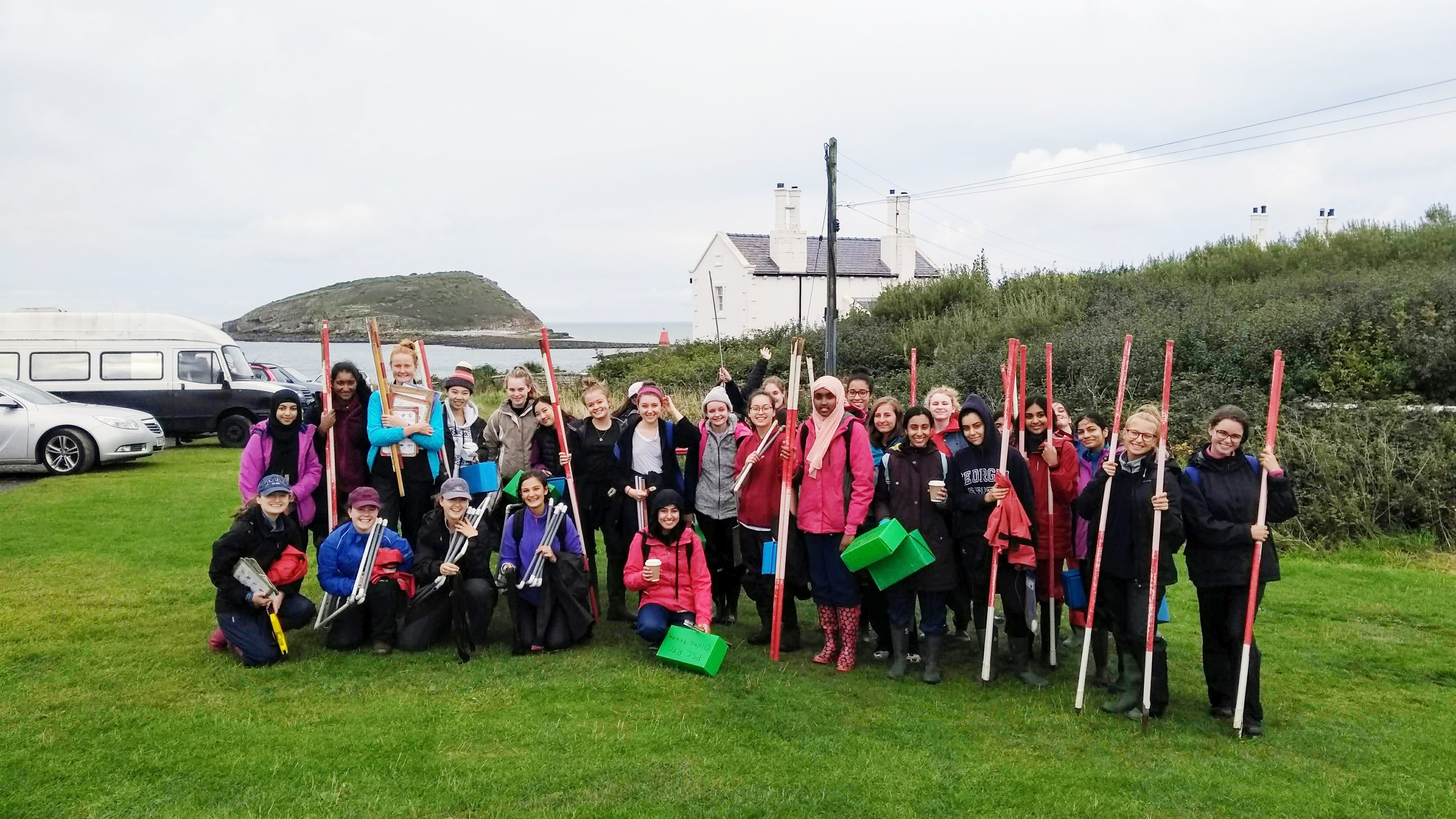Biology in Betws y Coed
Year 13 biologists set off to North Wales for a five-day residential field trip on the very first day of the academic year. On arrival at the Field Studies Council Centre at Betws y Coed, the students were introduced to their specialist ecology tutors Hanni and Sam, who would teach them for the rest of the course. The first task on the agenda was to set small mammal traps to estimate the population of mice and voles around the Field Centre.
The next morning, the girls awoke eagerly ready to check their traps but, as it had been a rainy night, they only managed to catch one mouse. The tutors had also set up a moth trap, which had more success and after making their observations, all the organisms were released back to where they were found. After an Immersion into Ecology session the girls got to grips with the equipment they would be using for the rest of the week.
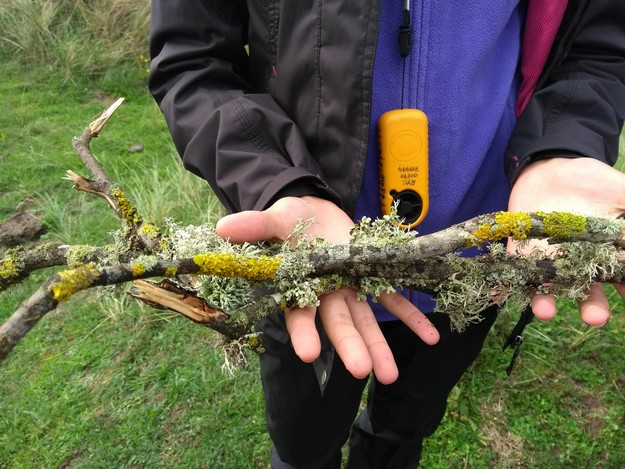
The sun emerged after lunch as everyone completed two studies on lichens and mosses in an ancient woodland, interspersed by bilberry picking and tasting wild sorrel. In the evening, they completed a ‘t-test’ on the data they had collected during the day. Saturday was a long day, first walking up to a mountain oligotrophic lake – Cym Idwal at the base of Y Garn and Tryfan, to observe the effects of different management of uplands. Later that day, we continued our journey across to Anglesey to study the ecology of a rocky shore at Penmon. The girls completed their required practical on evaluating the distribution of limpets along the shoreline; having decided their own investigation hypothesis, they collected their data meticulously. That evening, all the numbers were analysed and crunched resulting in fascinating statistical conclusions.
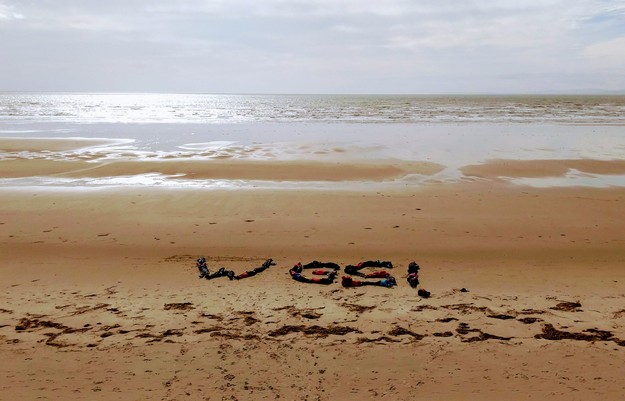
For a complete change of habitat on Sunday, we travelled to the extensive sand dune system at Harlech to study succession and to investigate the relationship between the plant diversity and the changing abiotic conditions. It was sunny and very windy. The girls collected some excellent data which they then analysed and discussed in the evening. Our final day was spent in the river Conwy sampling the invertebrate population and investigating possible correlations between this and several different abiotic factors, before travelling back to School in the evening.
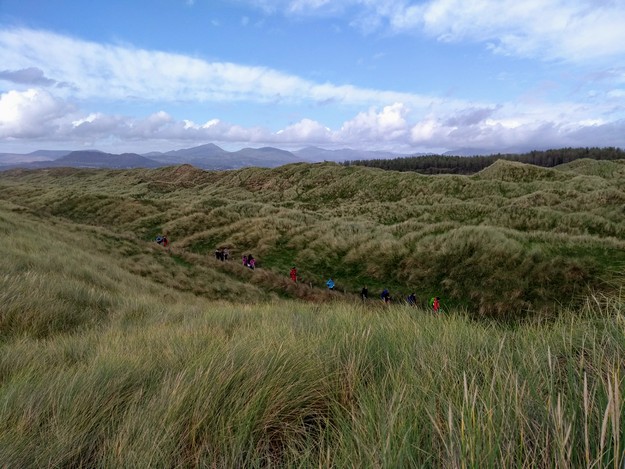
Our Biology students were so lucky to see these diverse habitats in mainly good weather and the Field Studies Centre provided us with exceptional food and tuition. This fieldtrip provided all the practical skills dictated by the specification and a real understanding of the complex relationships between biotic and abiotic factors within ecosystems that they will need for their end of year examination.
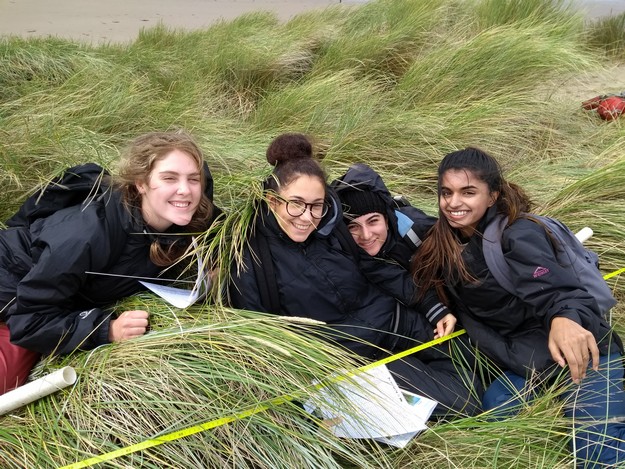
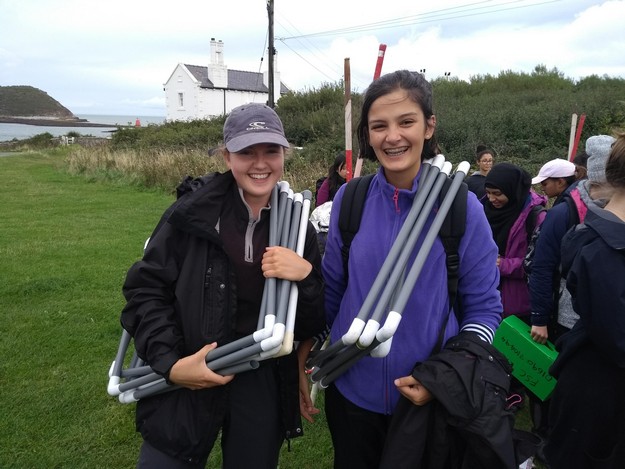
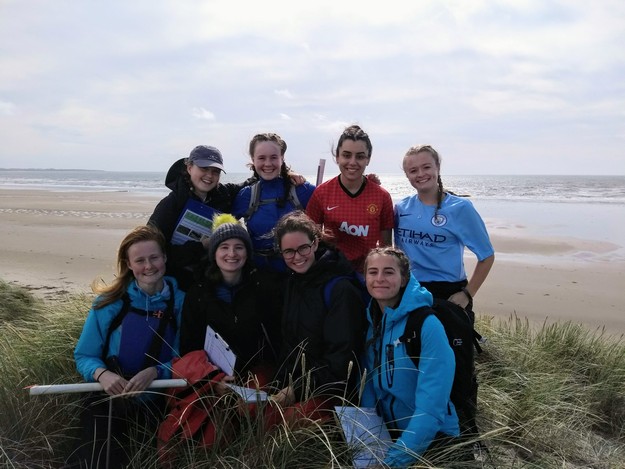
Thank you to Dr Madden, Mrs Cottam and Dr Kenny for accompanying myself and the girls on the trip and, as always, thank you to the girls for the good humour, great company and enthusiasm displayed throughout the whole trip.
Ms C McGregor, Head of Biology

